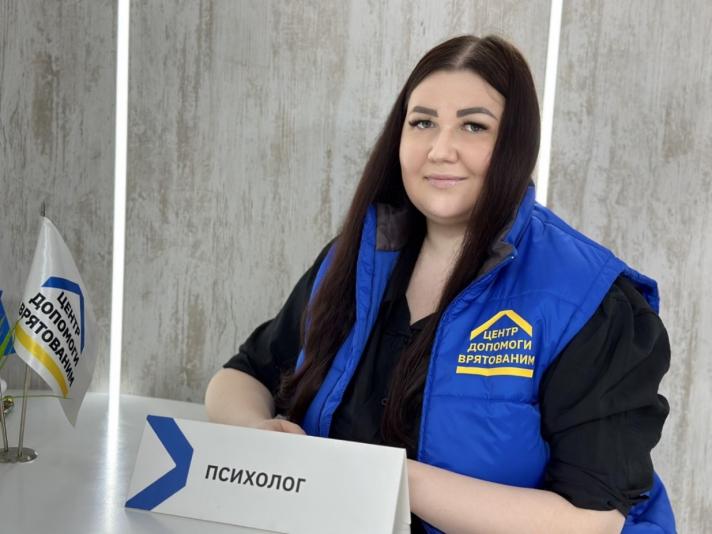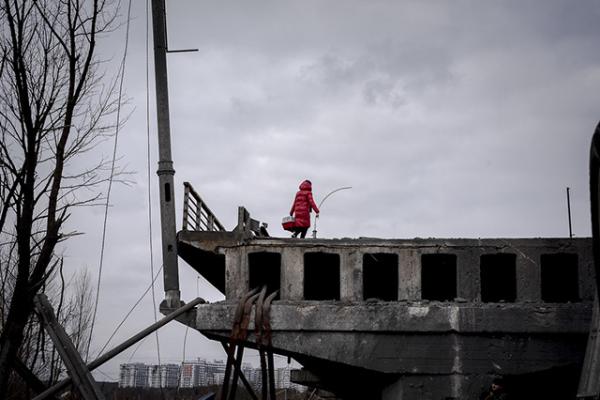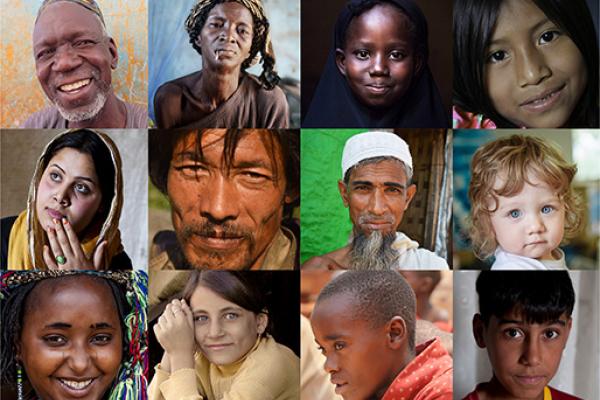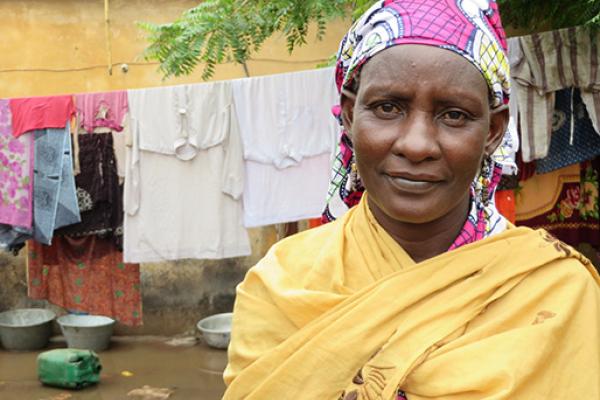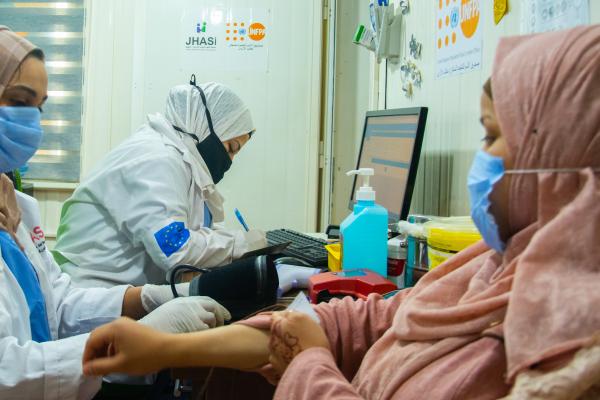Modern warfare employs technologically sophisticated means and types of weaponry. But other forms of violence with a painfully ancient and tragic history continue to be used in 2023: rape and sexual violence.
19 June marks the International Day for the Elimination of Sexual Violence in Conflict. On this occasion, learn about the work of Kateryna, a crisis psychologist who has been providing assistance to people who have experienced sexual violence in Russia’s war against Ukraine.
Kateryna Rakytyanska has been working as a crisis psychologist at the United Nations sexual and reproductive health agency’s (UNFPA) Survivor Relief Centres in Zaporizhzhia for almost a year.
Rape and sexual violence have short and long-term physical effects, but also deep psychological consequences for the survivors.
The EU helps the conflict-affected population in Ukraine access sexual and reproductive health services through partners like UNFPA, including survivors of sexual violence. This includes physical and psychosocial support, counselling, and medical follow-up.
“With the onset of a full-scale invasion, the need for psychological support for Ukrainians has increased dramatically. The number of requests from people who have survived various forms of violence by Russian military, including sexual, has grown as well,” she explains
“Now, men and women who have experienced this trauma are seeking new meaning in life, because living with the previous one has become impossible,” Kateryna shares.
Therapy is critically important for survivors, but the trauma they have experienced is deep and complex.
“Therapy, if conducted skillfully, truly heals the souls and brings these people back to a fulfilling life,” Kateryna explains. “However, as their fundamental sense of safety has been shattered, it is crucial to approach all actions with caution and ethics, avoiding pushing boundaries or going where the person is not yet ready to venture.”
The specialist explains that society plays a significant role in the recovery of those who have experienced sexual violence.
“We need to eliminate the stigmatisation of survivors, refraining from condemning and pushing them away,” she says.
“Currently, the pain from the endured trauma is still too intense for many survivors, and they are not ready to speak. However, these people will seek help later. It may take years, but it will happen, and we must be prepared for it,” explains Kateryna.
Despite the complexity and often heavy emotional impact that her work has, Kateryna is dedicated to helping people in need.
“I would like to address those who have experienced sexual violence. Seeking help is not shameful, it does not make you weaker. On the contrary, reaching out for assistance is a demonstration of strength and determination,” she says.
“The sooner you make this decision, the sooner you can fully recover and begin to live a fulfilling life. Every story is unique, and you are valuable.”
Story by Ivanna Bedei, Information and Communication Assistant in Ukraine, EU Civil Protection and Humanitarian Aid Operations.
Publication date: 19/06/2023

